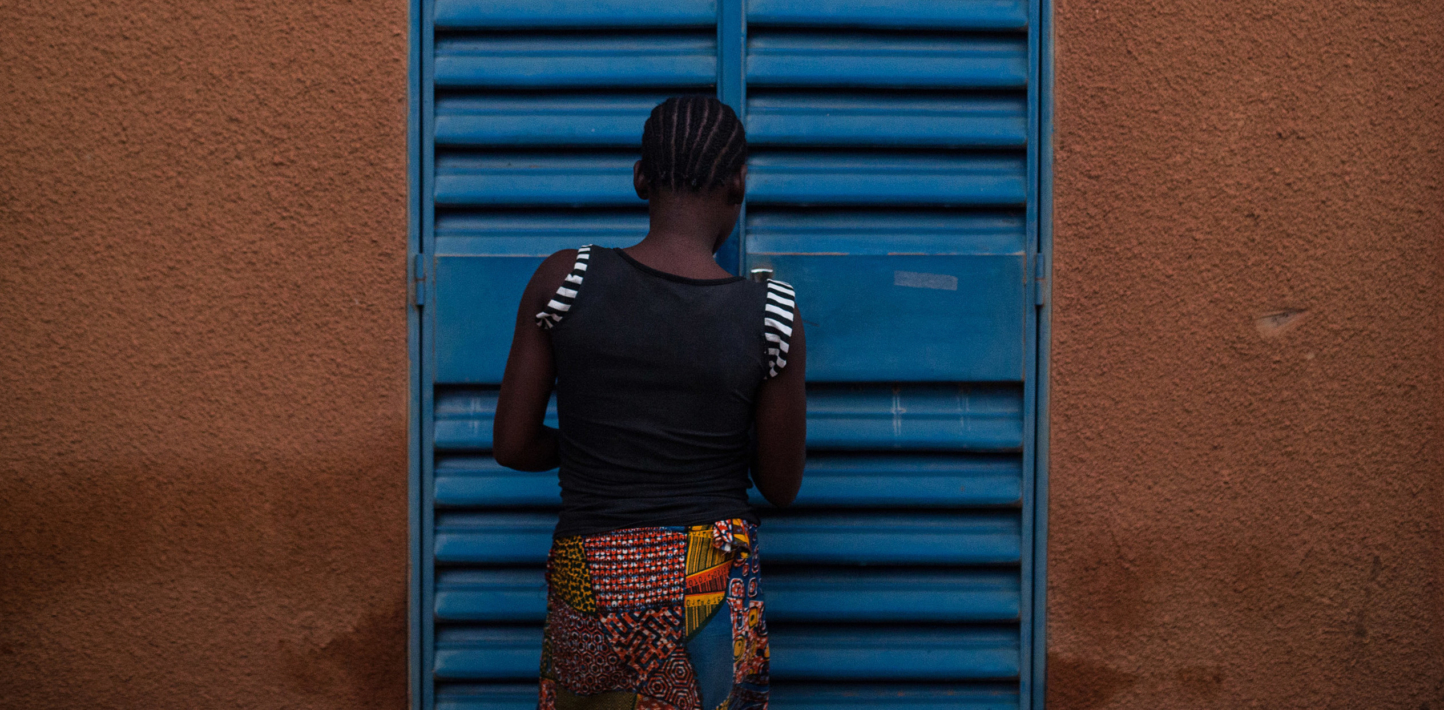What is forced marriage?
When one or both partners are not able to enter into a marriage freely, because they are being pressured or forced, or threatened with violence. In Burkina Faso, it most frequently affects girls and young women.
How bad is it in Burkina Faso?
In Burkina Faso, forced marriage is still rampant, especially in rural areas. According to UNICEF, over 52% of all women were married before the age of 18 and 10% before 15. Malaika* is one such case: “I come from a family of eight children. My parents imposed forced marriages on my sisters. I was 15 when my parents wanted me to marry.”
How old are the girls who are forced into marriage?
In Burkina Faso, some girls Amnesty spoke to were as young as 11 when they were forced to marry. The age difference between a girl and her future spouse can be enormous. In some cases the bride is 30 to 50 years younger than her partner. As 13-year-old Maria* told us: “My dad married me to a 70-year-old man who already has five wives.”
Why are girls in particular frequently subjected to forced and early marriage?
People consider a forced marriage between social groups or families as a way of consolidating relationships. In some cases, the promise of marriage is acquired at birth or during a girl’s childhood. Often, a girl’s parents receive a dowry from the husband or the other family. Payment varies from region to region and depends on income, but could be paid in money, use of agricultural land or livestock.
“My father wanted me to marry the herder who kept my father’s cows,” Céline*, aged 15, told us. “He wanted to reward him for his services.”
What happens to the girls after they are married?
They’re expected to have as many children as their husbands want, regardless of their own wishes or the threat that early pregnancy poses to their health and life. They raise children when many of them are still children themselves. Once married, the girls are expected to do the large majority of household chores such as cleaning, cooking as well as working on the farm. Very few have the chance to go to school or work outside. Many will be forced into marriages where the man has more than one wife, and maybe the second or third wife.
What are the health risks of early marriage?
Physical and sexual violence against women and girls in forced and early marriages is common. Of particular concern is the large number of pregnancy complications among young girls whose bodies are not yet ready to bear children. Some young girls may die during childbirth as a result of obstructed labour, or suffer life-threatening injuries, including obstetric fistula which can leave them incontinent.
One gynaecologist working in the Sahel region of Burkina Faso told us: “Girls even as young as nine are sent to live in the house with the husband, and even though the husband is meant to wait until she reaches puberty, he will often rape her before then.”
How does it affect their future?
Only 64.2% of girls in Burkina Faso can access education, but many of them are forced to give up school early to get married or to take on domestic work or other duties. By the time they are 19 years old, most girls have already become wives, and nearly half of all young women are already mothers.
A 16-year-old girl who fled forced marriage recalled her parents’ retort when she asked them why she couldn’t go to school: “What is the point in sending you to school? There is no benefit from girls being educated.”
What is the law on forced and early marriage in Burkina Faso?
Early and forced marriages are illegal, but the law is not strictly enforced. One problem is that the law often doesn’t cover traditional and religious marriages, which are very common. Many girls far younger than 17 are married in traditional ceremonies. What’s more, the law discriminates against girls. The legal marrying age for girls is just 17, compared to 20 for boys. Girls under 15 and boys under 18 can be married if a court awards special dispensation, although this is rarely used as many marriages are conducted in traditional ceremonies.
In 2015, Burkina Faso adopted a national strategy to reduce child marriage by 20% by 2025. But this target is too little, too late. Burkina Faso is required under international law to take immediate and sustained action to eliminate “child marriage” and the many abuses of girls’ human rights it gives rise to.
*All names have been changed.


